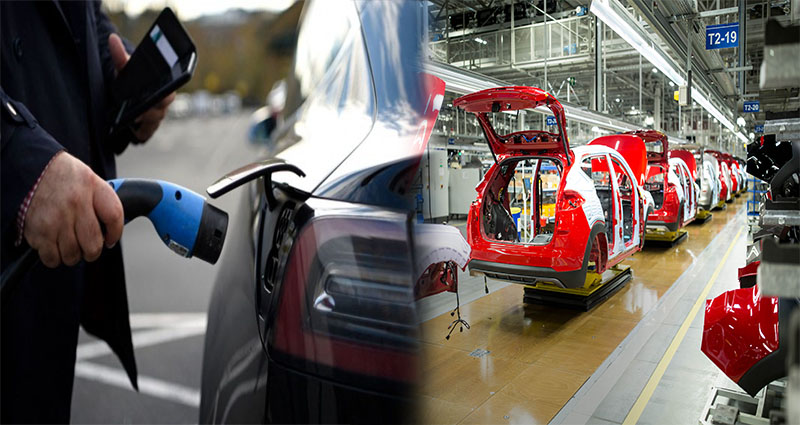The future of electric vehicles (EVs) holds immense potential for growth and market disruption in the automotive industry. As technology continues to advance and environmental concerns drive the shift toward sustainable transportation, several predictions can be made about the trajectory of EV growth and its impact on the market. In this article, we will explore these predictions and the potential market disruptions that lie ahead.
Prediction 1: Exponential Growth in Electric Vehicle Sales
The first and most prominent prediction is the exponential growth in electric vehicle sales. As governments worldwide implement stricter emission regulations, offer incentives, and invest in charging infrastructure, consumer demand for electric vehicles will soar. According to BloombergNEF, it is projected that by 2040, EVs will make up 58% of global passenger car sales.
Prediction 2: Decline of Internal Combustion Engines
As electric vehicles gain popularity and market share, the demand for internal combustion engines (ICEs) will decline. Traditional automakers will have to reorient their strategies and invest heavily in developing electric vehicles to remain competitive. This trend will lead to a significant market disruption, with a shift towards EV-focused manufacturing and a decline in ICE-related jobs.
Prediction 3: Rapid Technological Advancements
The future of electric vehicles will see rapid technological advancements that will further drive their growth. Battery technology, a key component of EVs, will continue to improve, enhancing range and charging speed. Advancements in autonomous driving technology, connectivity, and energy efficiency will also play significant roles in the development of next-generation electric vehicles.
Prediction 4: Increased Battery Efficiency and Range
One of the significant hurdles for electric vehicles has been limited battery range compared to traditional vehicles. However, predictions indicate that breakthroughs in battery technology will significantly increase range, reducing or even eliminating range anxiety for consumers. Battery efficiency will also improve, allowing for faster charging times and longer-lasting battery life, further enhancing the appeal and practicality of EVs.
Prediction 5: Decentralized Energy Grids and Energy Storage
The growth of electric vehicles will lead to innovative solutions for energy storage and the development of decentralized energy grids. As EV adoption increases, electric vehicle batteries can be utilized to store excess renewable energy generated from sources like solar and wind. This stored energy can then be used to power homes and buildings during peak demand periods, reducing strain on the grid and promoting energy sustainability.
Prediction 6: Disruption in the Oil Industry
The rise of electric vehicles will disrupt the oil industry and reduce global reliance on fossil fuels. As EVs become more affordable and accessible, the demand for gasoline and traditional oil products will decrease. This shift may result in significant changes in global energy markets, geopolitical relationships, and the overall landscape of the oil industry.
Prediction 7: Emergence of Electric Vehicle Service Providers
As the number of electric vehicles on the road increases, the need for specialized services and infrastructure will arise. This prediction suggests the emergence of electric vehicle service providers that offer services such as charging infrastructure management, battery maintenance, and on-demand repairs. These service providers will play a crucial role in supporting the rapid growth and adoption of electric vehicles.
The future of electric vehicles is bright, with predictions indicating exponential growth in sales and significant market disruptions. The decline of internal combustion engines, rapid technological advancements, increased battery efficiency and range, decentralized energy grids, disruption in the oil industry, and the emergence of electric vehicle service providers are just a few of the anticipated changes on the horizon. As the world embraces sustainable transportation and governments continue to invest in EV infrastructure, the future of electric vehicles promises a greener and more efficient mode of transportation.





